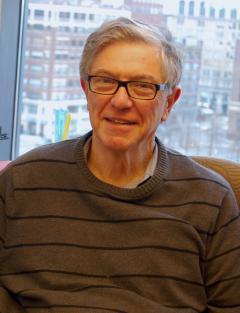-
About
- Departments & Offices
-
Academics
- Physician Assistant
- Special Master’s (MBS)
-
Admissions & Financial Aid
- Tuition & Fees
-
Student Experience
-
- Student Resources by Program
- Academic & Student Support
- Wellness & Wellbeing
- Student Life
- Events & Traditions
-
-
Research
- Research Labs & Centers
-
Local & Global Engagement
- Global Health Programs
- Community Engagement

Henry Wortis

Research/Areas of Interest
I no longer maintain an active research laboratory and do not accept dissertation students.
I remain fully engaged in graduate education through my roles in the Immunology Program and Tufts PREP.
My research most recently focused on the longstanding observation that as people age they often become more susceptible to infectious diseases and how a changing immune system contributes to this phenomenon.
Education
- Doctor of Medicine, Albert Einstein College of Medicine, New York, United States, 1960
- Bachelor of Science, University of Wisconsin Colleges, Madison, United States, 1956
Biography
I earned my MD at Albert Einstein College of Medicine and went on to a medical residency at NYU Bellevue and a rheumatology fellowship at Stanford. I turned to full time research as a post-doctoral fellow at the National Institute for Medical Research in London. There I developed a technique for identifying individual IgG producing cells, the role of T cells in inducing antibody isotype switching and the cellular basis for T cell deficiency in nude mice. During that period I received mentoring from Sir Peter Medawar, Avrion Mitchison and Len & Lee Herzenberg. When I established my own laboratory I began studies of B cell development and the functional defects in mice with mutations of Bruton's tyrosine kinase and CD22, resulting in immune-deficiency on the one hand and auto-reactivity on the other. I was particularly interested in the development and function of B-1 cells. For a period I turned my attention to a completely new area, the analysis of age-associated loss of resistance to infection. I have pioneered in the use of a genetic approach to analyze this problem. I have developed an interest in vaccine development and isotype-switching and received two Tufts pilot awards that started me on this work. My long-term interest in B-1 cells and their unique role in producing natural protective IgM antibodies combined with my vaccine work led me to initiate a project to produce a vaccine that protects against atherosclerosis. Having relinquished my directorship of the Immunology Graduate Program and other administrative responsibilities I am ready to focus on research again.